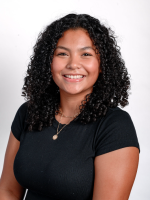Florida is a magnet for residential development, thanks to its beautiful beaches and tropical climate.
But, in the wake of the massive destruction caused by Hurricane Ian in parts of southwest and central Florida, experts say we have to rethink the way we build in Florida — and if we should even rebuild in certain areas.
On the latest episode of the Florida Roundup, Matthew Peddie spoke to Cynthia Barnett, an author and environmental journalist in residence at the University of Florida’s College of Journalism and Communications, to discuss the effects of climate change on the state.
In her recent article for Politico titled “Time to Reinvent Florida Once Again,” she stated, “In Florida — a real place with human roots that rebut the clueless takes that we can all just up and move — the way forward begins with an understanding that the sunny, paradisiacal vision of the state is both carefully constructed and fairly new.”
Speaking with Peddie, Barnett explained that many people and experts outside of Florida make it seem as though it is going to be easy to depopulate these areas. She believes that having the conversation and then making it happen is going to be a long and difficult process.
“It'll be a decades-long conversation. But the other important thing to remember is that it will happen,” she said. “This migration inward from the coasts will happen, and it can either be in these instant multibillion-dollar catastrophes or it can be planned and thought about and worked on together with policies and subsidies that give people and builders incentives to move into the interior.”
Barnett says that a way to look at how the state will deal with extreme weather conditions is to take a look back at how people like the indigenous Calusa people of Southwest Florida dealt with it. She mentions how in a span of 1,500 years and a series of natural disasters and climate change, the Calusa people innovated and moved their homes inland over time.
“This is all kind of fascinating history that I think can be foundational when we as a state talk about our own responses to catastrophes on the coast,” she said.
Throughout history, development practices across the state of Florida have negatively impacted the way that the region can withstand extreme weather conditions. Barnett says that tearing out mangroves and paving over wetlands — in Cape Coral and across the state of Florida — have made the area more susceptible to flooding.
“All of these things that were done not only in Cape Coral but across Florida really halted the ability to give floodwaters a place to go and to recharge aquifers,” she said.
Barnett’s theory is that Florida is made up of 'dreams' and with every natural disaster comes a new one. What this means for the future of places that were destroyed by Hurricane Ian, remains an open question. But she knows what she would like to happen.
“The way I have been talking to people about it and thinking about it is more an idea of rewilding the coast,” she said. “ How to rewild the coast and give people incentives to move inland.”
But she acknowledges it isn’t easy to just tell people not to build in areas — Florida’s politics won’t allow that either.







